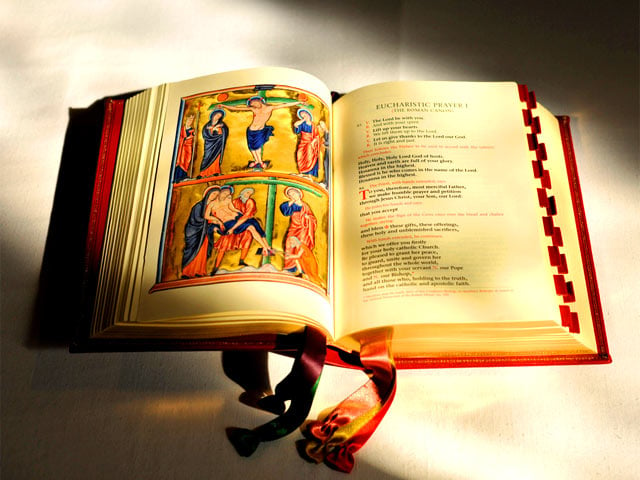- Accueil
- Notre communauté
- Notre foi
- Nos ministères
-
Vie paroissiale
- Calendrier des événements
- St. Aidan's Video Links
- Blog paroissial
- Archives des nouvelles
- Mass Etiquette and Information
- Ad Orientem News and Facts
- Catholic Links
- Prayers and Announcements
- Luis Dizon Reflections - Archive
- Bulletin
- Nous contacter
- Recherche

The Eternal Priest (Corpus Christi)
Click here for this Sunday's readings
Melchizedek is one of those enigmatic characters in the Bible. He appears out of nowhere in the middle of Abraham’s storyline and blesses the patriarch, offering him bread and wine. We are given no background information other than that he is a “King of Salem” and “priest of God Most High.” Salem is traditionally identified as Jerusalem, which is where the Israelite temple would later be built, and where their priests would serve.
Melchizedek appears next in Psalm 110:4, which states: “The LORD has sworn and will not change his mind, You are a priest for ever according to the order of Melchizedek” (Psalm 110:4). Hence, Psalm 110 is picked as the responsorial Psalm on this day. This is also one of the most quoted Psalms in the New Testament. Jesus often appeals to it as a prophecy of His own kingship and priesthood (e.g. Mark 12:35-37).
The specific verse citing Melchizedek is only cited, however, in Hebrews 5:6 and 7:3. The rest of chapters 5-7 speak about how Christ has become an eternal high priest. In verse 10, the author states that He was “designated by God a high priest according to the order of Melchizedek.”
But why Melchizedek? In Hebrew tradition, he was considered a mysterious figure. The Dead Sea Scrolls present him as being present at the dawn of creation (11QMelch), and that he is an eschatological judge who will descend from Heaven in the last days to destroy the devil (11Q13). We see echoes of this in Hebrews 7:3, which speak of him as, “without father or mother or genealogy, and has neither beginning of days nor end of life, but resembling the Son of God he continues a priest for ever.” One could easily see him, then, as a Christophany, or an appearance of Christ before the incarnation, since he is said to be without a beginning (i.e. eternal). In addition, when he offers bread and wine to Abraham we see in this a type of the Eucharist, which Christ instituted at the Last Supper.
All of this is especially relevant to remember this Feast of Corpus Christi, as we commemorate Christ’s priestly work in and through the Eucharist, who is forever our high priest under the order of Melchizedek. Everything that we do this Sunday is ultimately connected back to His priesthood. Thus we remember that in the celebration of the Eucharist, “as often as we eat this bread and drink this cup, we proclaim the Lord’s death until he comes.” (1 Corinthians 11:26).
